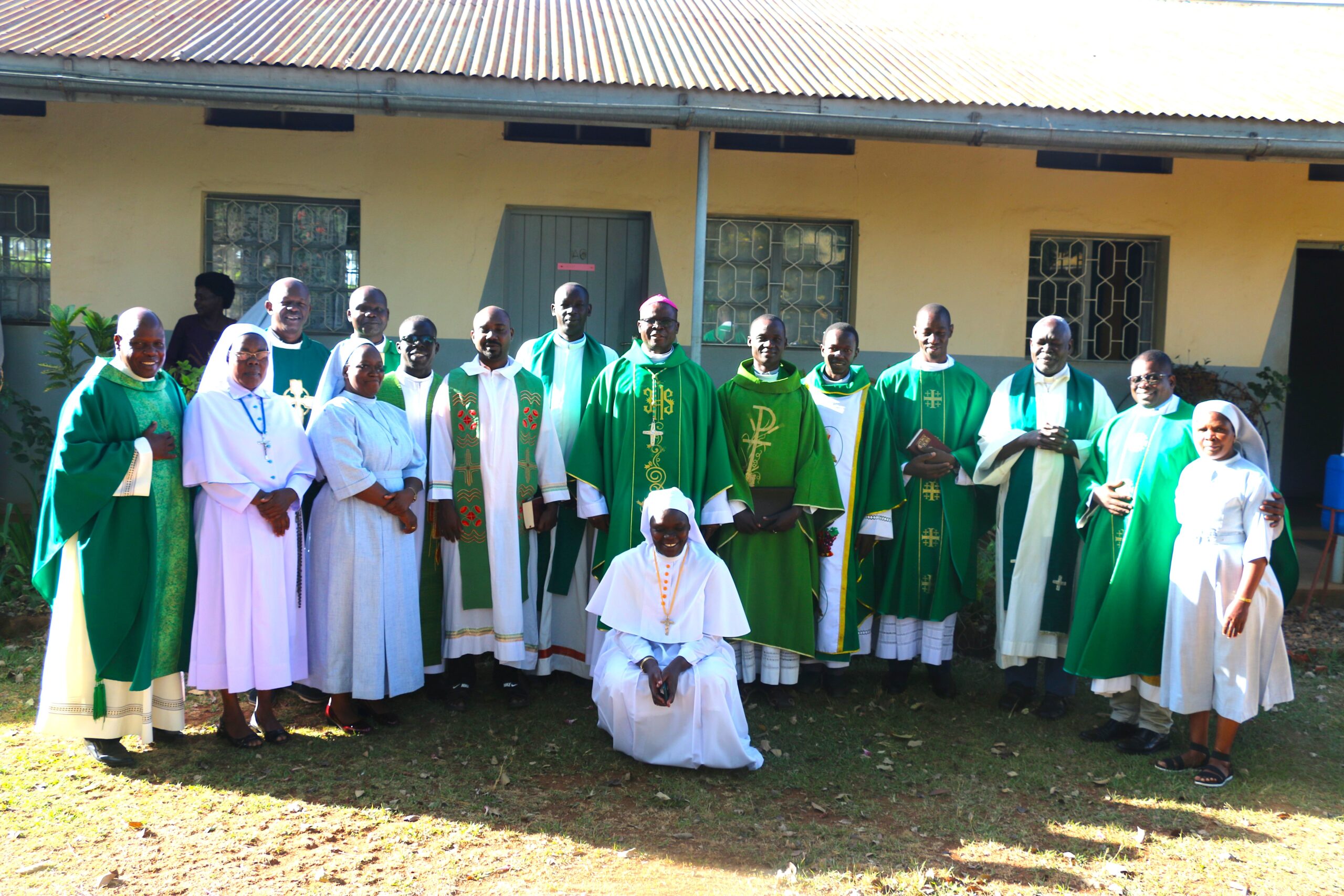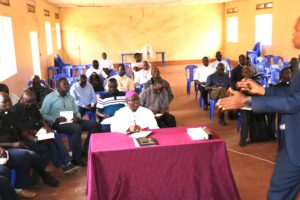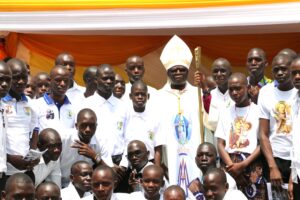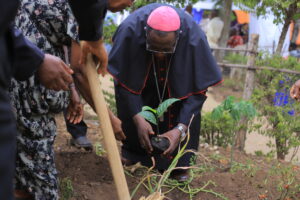UGANDA: Bishop Wanok Links Prevalent Corruption in Society to Ineffective Leadership

Rt Rev Sanctus Lino Wanok flanked by priests and religious at the climax of the Pastoral Assembly
Fr Isaac Ojok
The Right Reverend Sanctus Lino Wanok, Bishop of Uganda’s Lira Diocese, has linked the prevalence of corruption within society to ineffective leadership practices.
During his opening remarks on the second day of Lira Diocesan Pastoral Council 2025 held at St. John Bosco Catechetical Pastoral Centre in Ngetta Parish, the bishop emphasized the critical need for the electorates to choose leaders who are committed to serving the community selflessly.
In his address to the diocesan pastoral council, the bishop expressed his disappointment that many leaders in society prioritize their personal interests over the welfare of the people. He pointed out that the ongoing issues of corruption in the world are largely a consequence of poor leadership.
The bishop further articulated the necessity of grooming individuals who can emerge as competent and attentive leaders, capable of addressing the challenges faced by local communities. He urged the participants at the pastoral council to demonstrate exemplary leadership that serves the interests of all.
He expressed confidence in the potential and creativity of leaders at various levels, as well as the Christian community, to act as a catalyst for development within Lira Diocese. The bishop encouraged all the delegates and the broader Christian community to recognize themselves as cherished members of Lira Diocese, united in the spirit of Synodality.
In his remarks, Bishop Wanok highlighted the importance of Catholic professionals and other Christians engaging fully in the life and mission of the Church, embodying the principles of Synodality.
The bishop encouraged participants to engage in Synodality, combining their efforts to foster new synergies and innovative approaches to succeed in the various ministries undertaken in the diocese.
Bishop Wanok further emphasized the importance of maintaining focus to achieve success in the ministry entrusted to both religious and lay members of the community.
He ardently underscored the importance of the laity fulfilling their various roles, first as prophets who convey God’s message to the people, and secondly as kings, who are called to serve and sacrifice for others rather than seek to be served. He also highlighted the necessity for spontaneous prayers, seeking God’s grace to accept the call to leadership, emphasizing that it is essential to recognize the foundation of our calling, which is to be sent forth to accomplish the Mission of Christ.
According to Bishop Wanok, leadership entails facing certain difficulties and challenges, which should be viewed as opportunities to tackle specific issues within the church. He asserted that leadership within the church extends beyond the clergy; it is fundamentally about uniting individuals in the pursuit of collective growth and harmony.
The Bishop urged the participants of the diocesan pastoral council to avoid distractions that may hinder their acceptance of God’s call. He encouraged the delegates to treat the diocesan pastoral council as a time for prayer, reflection, and silence, aiming to generate key insights that would benefit the church in the Lira diocese.
He concluded by expressing gratitude to the participants for their willingness to embrace leadership despite the challenges, noting that in taking on this role, they also partake in the experiences of Jesus Christ.
At the Diocesan Pastoral Council key topics discussed were on education, environmental protection, the preservation of cultural norms and values, the significance of Small Christian Communities, and the central role of catechesis in enhancing evangelization, alongside discussions on effective and transparent leadership.
The discussion also centered on the concept of Caritas, which signifies the infusion of charity into the lives of God’s children, stemming from a profound love for God. This vision aims to foster economic empowerment for pastoral agents and Christian families.
The diocesan Pastoral Assembly that started on 13th January to 16th January 2025 was guided under the theme, Reconciliation, Forgiveness and Mercy in the light of Jubilee Year.


